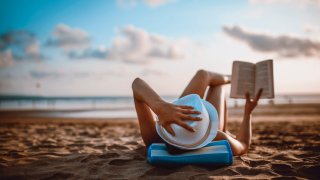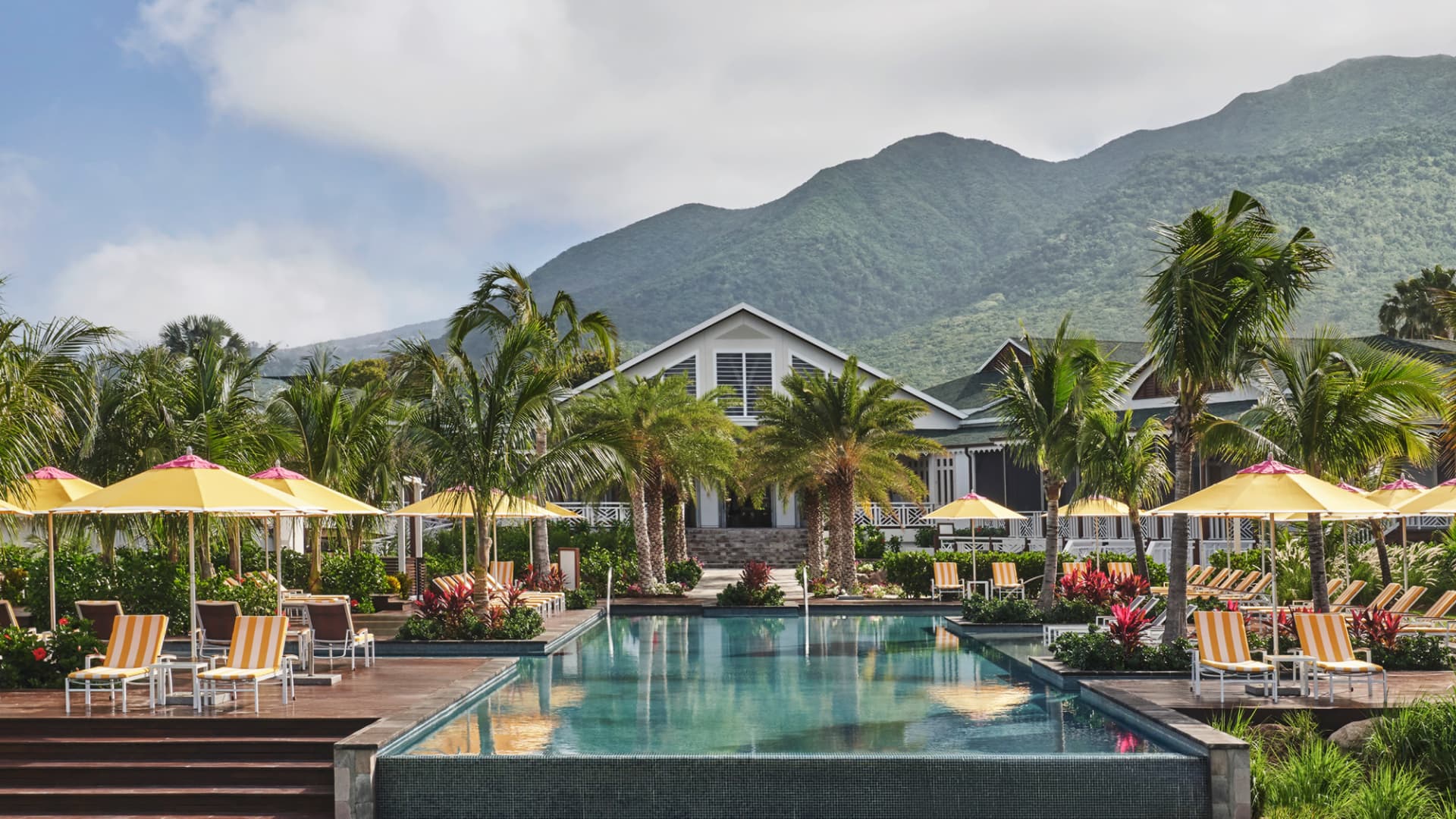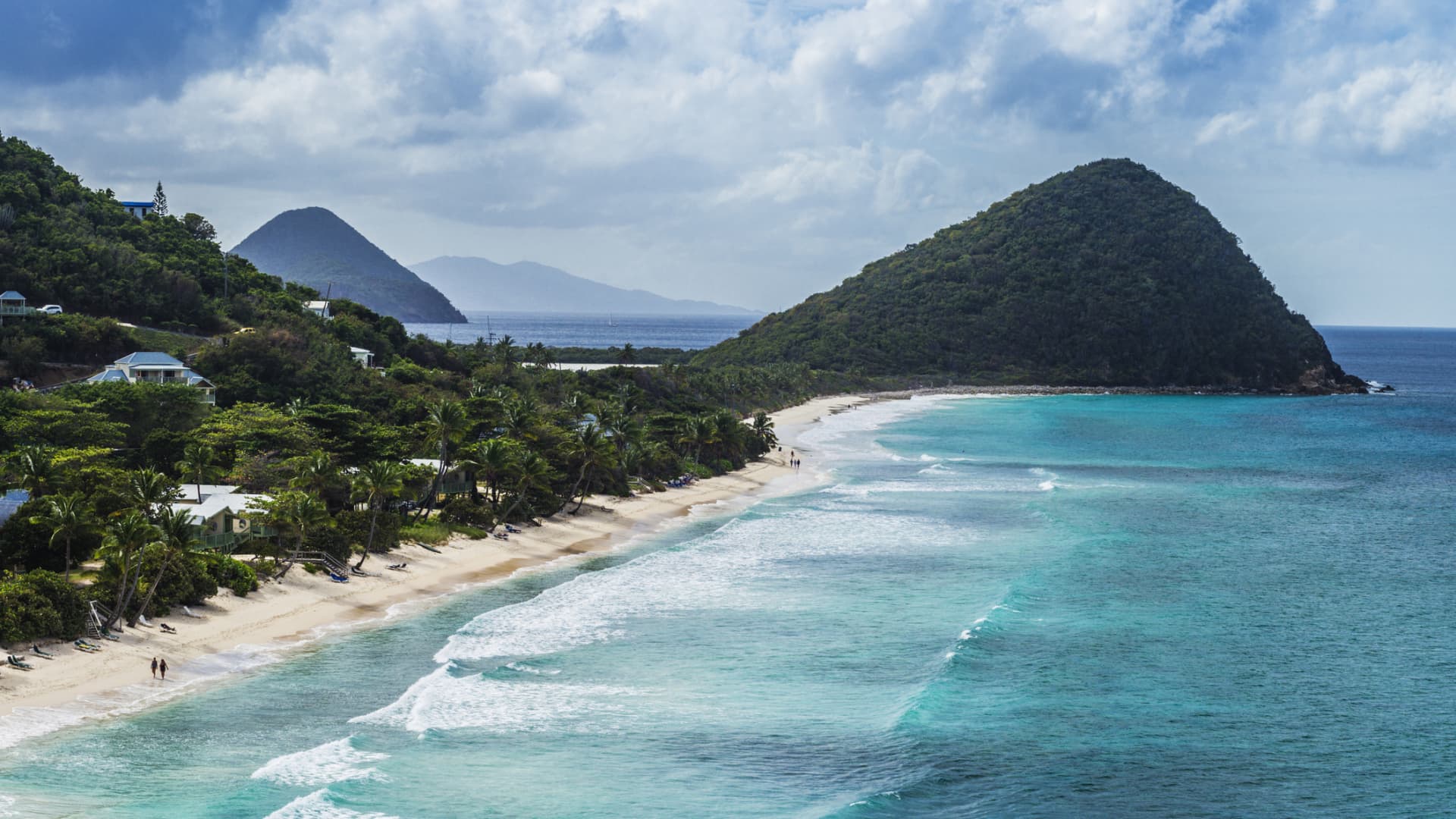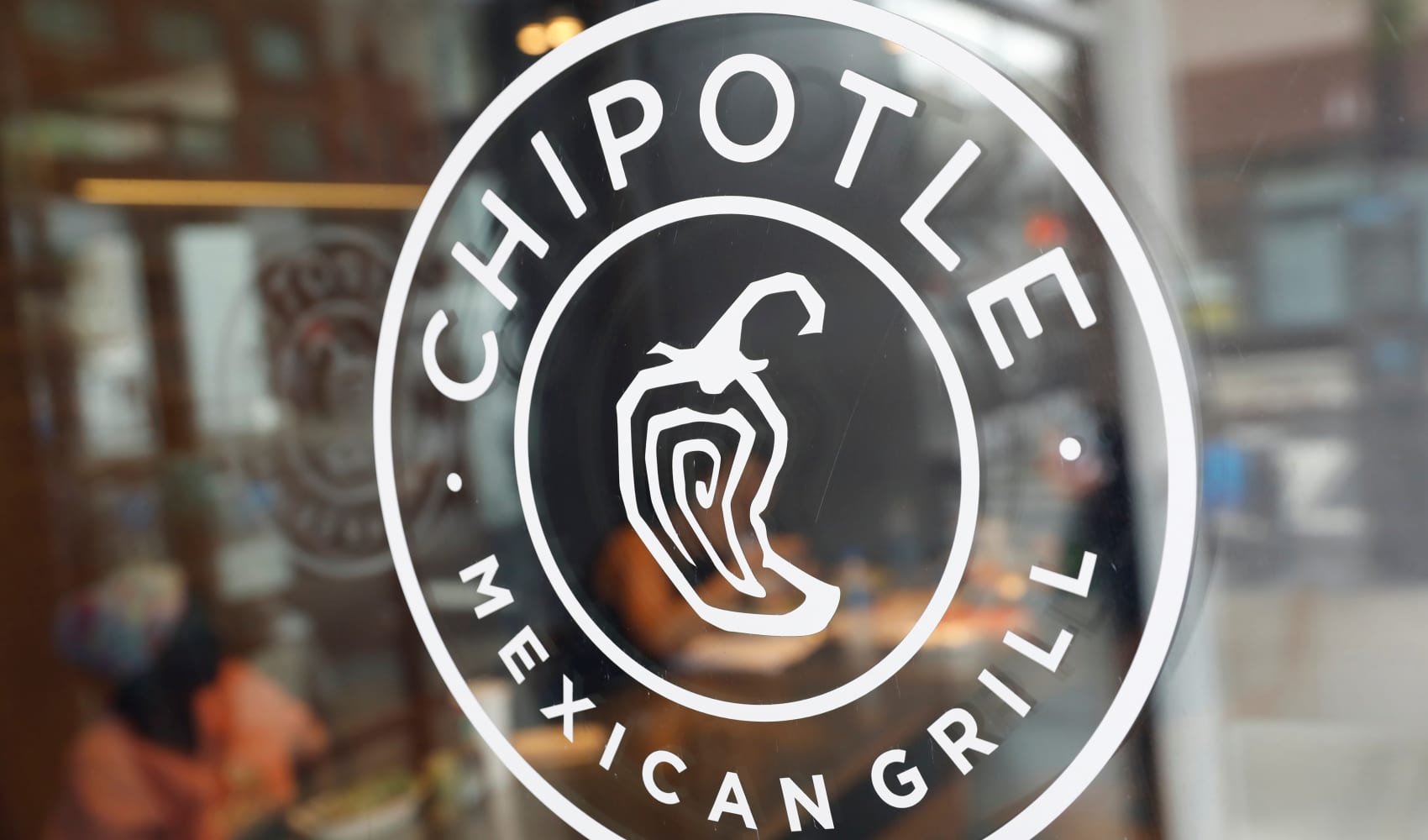
Micronesia has confirmed only one case of Covid-19 to date. The Polynesian island of Samoa and the South Pacific island of Vanuatu have just three cases each.
Sounds like safe travel choices? There's just one problem — none are allowing in tourists.
Many islands that opened to tourists during the pandemic experienced rising coronavirus infection rates shortly thereafter.
But there are exceptions.
Get Connecticut local news, weather forecasts and entertainment stories to your inbox. Sign up for NBC Connecticut newsletters.
The following destinations kept Covid rates low by imposing stringent protocols, which often include "vacation in place" requirements.
Anguilla
Though the small Caribbean island of Anguilla opened to international visitors in November, it has registered only 18 Covid-19 cases to date, according to data compiled by Johns Hopkins University.
Travelers to the British Overseas Territory, located east of the British and U.S. Virgin Islands, must be pre-approved to enter and test negative for Covid-19 before arriving, upon landing and again after a "stay in place" period of either 10 or 14 days (depending on from where travelers are visiting).

During that period, travelers can stay in hotels and villas and dine in restaurants, provided they are "Safe Environment Certified," according to Anguilla Tourist Board's website. They can also golf, scuba dive and make offshore excursions, as long as those are government-certified too.
Money Report
Travelers can apply for a "short stay" (less than three months) for around $250 per person. Remote workers, students and their families can apply under a separate "digital nomad" program, which costs $2,000 to stay up to a year.
Vaccination rate: 26% of the population has had at least one dose as of Feb. 26 (unless otherwise noted, all vaccination rates are from the Our World in Data website).
Saint Kitts and Nevis
The 100-square-mile island country of Saint Kitts and Nevis has registered 41 Covid-19 cases since the start of the pandemic.
When it reopened its borders more than four months ago, the dual island nation didn't assign risk levels to travelers from different countries because "all visitors are considered as arriving from an area of significant risk," according to its tourism authority's website.
All incoming travelers must be approved to enter and must test negative before arriving, including children and vaccinated people.

But Saint Kitts and Nevis is more particular about testing than most. The pre-departure testing window is short (between 48 and 72 hours prior to departure), and tests must be nasopharyngeal RT-PCR (reverse transcription polymerase chain reaction) tests "taken at laboratories which have an ISO/IEC 17025 standard," according to the website.
"Those traveling from the U.S. should look for laboratories that are CLIA-certified (CDC approved) and those from the U.K. should refer to UKAS approved labs," it reads, the latter referring to the United Kingdom Accreditation Service, a national body that assesses testing and other services.
The website states that test results from American laboratory company LabCorp are not accepted. However, a Saint Kitts' tourism representative told CNBC Global Traveler that this information is "outdated" and is no longer applicable, and that travelers can email questions about tests in advance.
Travelers arriving via plane must stay in their hotel for the first week of travel, though they can interact with other guests and take part in hotel activities. Those who test negative on the eighth day can move around the island to select locations, including the Brimstone Hill Fortress, a UNESCO World Heritage Site, and the historic sites in the capital city of Basseterre. Note: Travelers from the U.K. must quarantine at their hotels and are currently not allowed to "vacation in place."
Guests who test negative after 14 days on the island can integrate into the local population, which has about 53,000 residents.
Vaccination rate: Around 10% of the population as of March 10 (according to a tourism representative for the country).
Macao
Though the historic section of Macao sits on a peninsula that is now connected to the Chinese mainland, the Macao island of Cotai is a huge tourist draw due to its grand casino complexes, including the 10.5 million-square-foot Venetian Macao.
Like Hong Kong, Macao is a special administrative region of China. Although it's largely only open to residents of China, Hong Kong and Taiwan, that still represents nearly 20% of the world's population.

Quarantine periods vary from zero (for travelers from most parts of China) to 21 days (for travelers from Hong Kong). Casino stocks rallied when Macao announced last month that Chinese travelers would no longer need negative test results to enter casinos (though they still must have negative tests to enter Macao).
Home to nearly 650,000 people, Macao's population is much larger than the other locations on this list. To date, it's confirmed 48 Covid-19 cases, however, China counts coronavirus cases differently than most countries by excluding asymptomatic positive cases from official tallies.
Vaccination status: A rollout campaign started in February using Chinese-made Sinopharm vaccines, according to local reports.
Grenada
Home to around 112,000 people, Grenada has confirmed 148 coronavirus cases in total.
Travelers who like to keep things simple will appreciate Grenada's travel requirements. Before departing, travelers must book accommodations, register for a certificate to enter and test negative for Covid-19. After arriving, travelers must quarantine and pass a PCR test on the fifth day, with results provided about two days later.

Thereafter, visitors can leave their hotels and use certified tourism services, which include taxis, diving companies and glass-bottom boats.
Vaccination rate: <1% of the population has had at least one dose as of Feb. 16.
Dominica
Though it has 40,000 fewer residents than Grenada, the island nation of Dominica has registered three more cases than its Caribbean neighbor — or 151 in total.
After reopening to tourists in August, the island nation located between Martinique and Guadeloupe launched a program called "Safe in Nature" last October that allows travelers to stay at certified accommodations and take certified transportation to select locations around the island for the initial five to seven days of a trip. It's part of what Dominica calls a "managed experience."

That, however, applies only to travelers from high-risk countries, including the United States, Canada, the U.K., France and Japan, although those from low-and-medium-risk countries are participating in the program too. Other travelers are "monitored" at their accommodation, which Dominica's tourism authority defines as interviews and assessments conducted in-person and via telephone.
Vaccination rate: 10% of the population has had at least one dose as of March 1.
British Virgin Islands
With a population of 30,000 people, the British Virgin Islands has less than a third of the population of the U.S. Virgin Islands. And its 153 confirmed Covid-19 cases are far less than the U.S. Virgin Islands, which has registered 2,744 cases as of March 10.
The British Overseas Territory reopened on Dec. 1 and requires travelers to test upon arrival, download a tracing app (or wear a wristband monitoring device) and quarantine for four days in their hotel or villa. Tourists cannot move around the island during that period.

Everyone five years of age or older who passes a PCR test on the fourth day of travel is free to move around the British Virgin Islands thereafter.
Travelers must also stay in "approved gold seal accommodations" which includes a list of places on Tortola, Virgin Gorda, Jost Van Dyke and Anegada, as well as Richard Branson's luxury private island, Necker Island.
Vaccination rate: 13% of the population as of March 5, according to a governmental press release.






